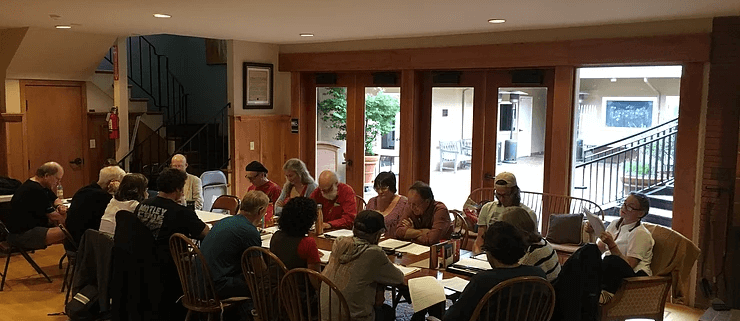Merry Wives Editions and Critical Resources
EDITIONS
There are many editions of The Merry Wives of Windsor and what you choose will depend on the content you want and the format. I tend to use two editions: firstly, the Arden, which is the most scholarly and provides a comprehensive gloss on words, phrases and editorial choices; and secondly, the RSC version which is aimed at performers and feels easier to read. I have given details of these below. There are other excellent editions (Folger, World Library, Cambridge, Penguin) all with something to offer. Avoid editions published as part of a Collected Works, since the text usually predates modern scholarship and the notes tend to be either minimal or unreliable or both. Online versions are similar to the editions in Collected Works.
William Shakespeare, The Merry Wives of Windsor, ed. Jonathan Bate and Eric Rasmussen, Basingstoke, Macmillan for the Royal Shakespeare Company, 2011.
William Shakespeare, Sonnets, ed. Katherine Duncan Jones, London and New York, Bloomsbury Arden Shakespeare, 2010.
One difference between these two editions of Merry Wives is that in the Arden, as in most editions, Master Ford’s name when he is in disguise is Brook, while in the RSC version it is Broom. Brook was the name used in the Quarto edition of 1602, and as such provided a pun on the relationship between a ‘brook’ or creek and a ‘ford’, or crossing. In the Folio version of 1623 the name was changed to Broom, perhaps to avoid giving offence to Lord Cobham, whose family name was Brooke and who had already objected to the original name given to Falstaff (Sir John Oldcastle).
THE BOOK OF SONGS AND SONNETS
In the opening scene of the play Slender, in his ineffectual courtship of Anne Page, turns to the audience and says “I had rather than forty shillings I had my book of Songs and Sonnets here.” He’s referring to Tottel’s Miscellany, the anthology compiled by Richard Tottel that introduced the sonnet form and the work of the poets Thomas Wyatt and the Earl of Surrey to the Elizabethans. Shakespeare learned a great deal of his poetic method from Wyatt in particular. One of Wyatt’s best known quotes is:
They flee from me, that sometime did me seke
With naked fote stalking within my chamber.
A modern edition of Tottel’s Miscellany is published by Penguin:
Richard Tottel, Miscellany: Songs and Sonnets of Henry Howard, Earl of Surrey, Sir Thomas Wyatt and Others, ed. Amanda Holton and Tom MacFaul, London, Penguin, 2011.
A GREAT RESOURCE
Knowledge about Shakespeare is always useful, though the absence of evidence from his personal life has lead to a proliferation of theories and speculations. The following website, managed by the Folger Library in partnership with others such as the Bodleian Library (University of Oxford), makes available a wide range of primary documents.
Shakespeare Documented: https://shakespearedocumented.folger.edu/
CRITICAL TEXTS
There are many discussions of Shakespeare’s work in general and individual plays in particular. The edition of the play you use will offer a bibliography and your local library may have its own selection. I suggest two books. The collection of new critical essays brings together some of the recent critical work that has led to a re-thinking of the importance of the play in the Shakespeare canon not least because it recognizes the centrality to the play of the two wives rather than seeing it simply as an additional riff on Falstaff. And the book on popular culture helps us to understand the English-ness of the play and its use of pagan beliefs.
Evelyn Gajowski and Phyllis Rackin, eds., The Merry Wives of Windsor: New critical essays, London, Routledge, 2015.
Mary Ellen Lamb, The Popular Culture of Shakespeare, Spenser, and Jonson, London, Routledge Studies in Renaissance Literature and Culture 2, 2006.
George Puttenham, The Arte of English Poesie, first published in 1589 by Richard Field, now available as a public domain e-book.
Clare Colebrook, Irony, London, Routledge, 2004.
D.C. Muecke, Irony and the Ironic, 2nd edition, London and New York, Methuen, 1970 &1982.
The critical texts are expensive and local libraries are not guaranteed to have them. I have copies of the three mentioned above, as well as of the Arden and RSC editions, and members of the cast and crew are welcome to consult them.




Leave a Reply
Want to join the discussion?Feel free to contribute!